![]() >> www.cnc-aff.fr The CNC French Film Archives were created in 1969 on the initiative of André Malraux, Minister of Culture, so that the state could take over the inventory and conservation of old films, including those on nitrate supports. Subsequently, the collections of old films steadily grew. In addition to voluntary deposits, donations, and acquisitions, legal deposits for films were implemented in 1977 and became the CNC’s responsibility in 1992.
>> www.cnc-aff.fr The CNC French Film Archives were created in 1969 on the initiative of André Malraux, Minister of Culture, so that the state could take over the inventory and conservation of old films, including those on nitrate supports. Subsequently, the collections of old films steadily grew. In addition to voluntary deposits, donations, and acquisitions, legal deposits for films were implemented in 1977 and became the CNC’s responsibility in 1992.
Archivi partecipanti
>> www.cncinema.abt.ro Arhiva Nationala de Filme (ANF) was established in 1957 as sole institution in Romania that collects, preserves and uses films for non-commercial purposes. Over the years it has been active in finding and identifying films, cataloguing as well as carrying out a series of studies on the history of Romanian cinema. It is a member of FIAF since 1960 and member of ACE since 1996.
 >>www.bundesarchiv.de It is the concern of every cultured nation to maintain, care for, make accessible to the public and continually supplement its stock of moving pictures. The Federal Republic of Germany primarily fulfils this responsibility through the Federal Archives. The Federal Film Archive in Berlin is one of the largest archives of its kind in the world.
>>www.bundesarchiv.de It is the concern of every cultured nation to maintain, care for, make accessible to the public and continually supplement its stock of moving pictures. The Federal Republic of Germany primarily fulfils this responsibility through the Federal Archives. The Federal Film Archive in Berlin is one of the largest archives of its kind in the world.
 Cinecittà Luce è una società pubblica che opera come braccio operativo del Ministero dei Beni Culturali per la promozione dell'industria cinematografica italiana. E’ il risultato della fusione tra Cinecittà Holding e l’Istituto Luce, che è stato il primo gruppo cinematografico di stato in Europa, fondato nel 1924.
Cinecittà Luce è una società pubblica che opera come braccio operativo del Ministero dei Beni Culturali per la promozione dell'industria cinematografica italiana. E’ il risultato della fusione tra Cinecittà Holding e l’Istituto Luce, che è stato il primo gruppo cinematografico di stato in Europa, fondato nel 1924.
![]() >>www.cinemateca.pt La Cinemateca Portuguesa-Museu do Cinema è il museo cinematografico nazionale portoghese, un’istituzione pubblica preposta alla conservazione e alla proiezione del patrimonio cinematografico portoghese e mondiale. Fondata nei primi anni '50 dal pioniere delle cineteche Félix Ribeiro, la Cinemateca è diventata un’istituzione autonoma nel 1980.
>>www.cinemateca.pt La Cinemateca Portuguesa-Museu do Cinema è il museo cinematografico nazionale portoghese, un’istituzione pubblica preposta alla conservazione e alla proiezione del patrimonio cinematografico portoghese e mondiale. Fondata nei primi anni '50 dal pioniere delle cineteche Félix Ribeiro, la Cinemateca è diventata un’istituzione autonoma nel 1980.
 La Cinémathèque Française è stata fondata nel 1936 da Henri Langlois, Georges Franju, Jean Mitry e Paul Auguste Harlé. Negli anni è diventata un punto di riferimento per la cultura cinematografica e oggi la sua vasta collezione ne fa uno degli archivi di opere cinematografiche più famosi al mondo. È anche un luogo in cui diverse generazioni hanno scoperto il cinema.
La Cinémathèque Française è stata fondata nel 1936 da Henri Langlois, Georges Franju, Jean Mitry e Paul Auguste Harlé. Negli anni è diventata un punto di riferimento per la cultura cinematografica e oggi la sua vasta collezione ne fa uno degli archivi di opere cinematografiche più famosi al mondo. È anche un luogo in cui diverse generazioni hanno scoperto il cinema.
>>www.cinematek.be The Cinémathèque Royale is one of the most important archives in Europe and in the world, due to its collections, its activities in exhibiting and distributing archival films across Europe, its role in the International associations of Archives (FIAF, ACE), its technical staff who has a history o
![]() La Cineteca di Bologna è un’istituzione comunale il cui principale obiettivo è la conservazione e la diffusione del patrimonio cinematografico in quante più forme ed espressioni possibili. È nata negli anni ’60 dalla Commissione Cinema di Bologna attorno alla semplice idea di considerare il nostro passato culturale come qualcosa di vivo, e quindi proiettato verso il futuro.
La Cineteca di Bologna è un’istituzione comunale il cui principale obiettivo è la conservazione e la diffusione del patrimonio cinematografico in quante più forme ed espressioni possibili. È nata negli anni ’60 dalla Commissione Cinema di Bologna attorno alla semplice idea di considerare il nostro passato culturale come qualcosa di vivo, e quindi proiettato verso il futuro.
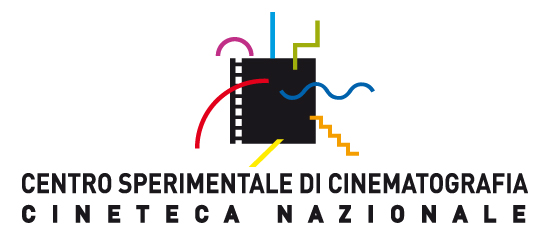 >>www.fondazionecsc.it The Cineteca Nazionale (National Film Archive), part of Centro Sperimentale di Cinematografia, one of the most important film archives in Europe, was instituted by State law in 1949 in order to preserve and propagate Italy's cinematographic heritage. The original nucleus of the collection was put together with the establishment of the Centro Sperimentale di Cinematografia in the 1930s, and it was used as a teaching aid.
>>www.fondazionecsc.it The Cineteca Nazionale (National Film Archive), part of Centro Sperimentale di Cinematografia, one of the most important film archives in Europe, was instituted by State law in 1949 in order to preserve and propagate Italy's cinematographic heritage. The original nucleus of the collection was put together with the establishment of the Centro Sperimentale di Cinematografia in the 1930s, and it was used as a teaching aid.
 >>www.dfi.dk/ Il Danske Filminstitut è un ente nazionale incaricato di sostenere e promuovere la cultura cinematografica, i film e la loro conservazione. Le attività del DFI vanno dalla partecipazione allo sviluppo e alla produzione di lungometraggi, cortometraggi e documentari, alla distribuzione e marketing fino alla gestione dell’archivio film e della cineteca nazionali.
>>www.dfi.dk/ Il Danske Filminstitut è un ente nazionale incaricato di sostenere e promuovere la cultura cinematografica, i film e la loro conservazione. Le attività del DFI vanno dalla partecipazione allo sviluppo e alla produzione di lungometraggi, cortometraggi e documentari, alla distribuzione e marketing fino alla gestione dell’archivio film e della cineteca nazionali.
![]() >> www.deutsche-kinemathek.de The task of the Deutsche Kinemathek – Museum für Film und Fernsehen is to collect, preserve, develop, present and mediate our audiovisual heritage. Since 2006, it remains the sole institution in Europe presenting both media together through its permanent exhibitions on film and television.
>> www.deutsche-kinemathek.de The task of the Deutsche Kinemathek – Museum für Film und Fernsehen is to collect, preserve, develop, present and mediate our audiovisual heritage. Since 2006, it remains the sole institution in Europe presenting both media together through its permanent exhibitions on film and television.
![]() >>www.deutsches-filminstitut.de Fondato nel 1949, il Deutsches Filminstitut – DIF non solo è il più vecchio ente cinematografico tedesco, ma è anche uno dei più grandi del paese. In seguito all'incorporazione del Deutsches Filmmuseum di Francoforte nel 2006, il DIF è oggi in grado offrire una straordinaria varietà di servizi e competenze: dalla gestione dell’archivio con le sue numerose collezioni che coprono ogni aspetto della storia del cinema e della cinematografia, all’analisi scientifica dei materiali e alla presentazione al pubblico in occasione di proiezioni, festival e mostre o attraverso pubblicazioni online e progetti editoriali.
>>www.deutsches-filminstitut.de Fondato nel 1949, il Deutsches Filminstitut – DIF non solo è il più vecchio ente cinematografico tedesco, ma è anche uno dei più grandi del paese. In seguito all'incorporazione del Deutsches Filmmuseum di Francoforte nel 2006, il DIF è oggi in grado offrire una straordinaria varietà di servizi e competenze: dalla gestione dell’archivio con le sue numerose collezioni che coprono ogni aspetto della storia del cinema e della cinematografia, all’analisi scientifica dei materiali e alla presentazione al pubblico in occasione di proiezioni, festival e mostre o attraverso pubblicazioni online e progetti editoriali.
 >> www.filmi.arhiiv.ee The main task of the Estonian Film Archives, according to the Act of Archives, is to collect, preserve and provide access to the national film, photo and audio heritage. Collecting and preserving film heritage started in 1935. After the II WW governing the archival matters was directed to Moscow. Access to most of the pre-war films was restricted (the first film of Estonian origin was released in 1912).
>> www.filmi.arhiiv.ee The main task of the Estonian Film Archives, according to the Act of Archives, is to collect, preserve and provide access to the national film, photo and audio heritage. Collecting and preserving film heritage started in 1935. After the II WW governing the archival matters was directed to Moscow. Access to most of the pre-war films was restricted (the first film of Estonian origin was released in 1912).
 >>www.eyefilm.nl L’Istituto Cinematografico EYE è l’ente di riferimento per il sostegno della cultura cinematografica dei Paesi Bassi. L’istituto gestisce un’importante collezione internazionale di pellicole, fotografie e manifesti cinematografici, che riflette gli aspetti più importanti della storia del cinema. Molte parti di questa collezione sono uniche al mondo.
>>www.eyefilm.nl L’Istituto Cinematografico EYE è l’ente di riferimento per il sostegno della cultura cinematografica dei Paesi Bassi. L’istituto gestisce un’importante collezione internazionale di pellicole, fotografie e manifesti cinematografici, che riflette gli aspetti più importanti della storia del cinema. Molte parti di questa collezione sono uniche al mondo.
 >>http://filmarchiv.at L'Archivio Cinematografico Austriaco è la sede principale per la raccolta di film e documenti cinematografici austriaci e ospita il patrimonio culturale audiovisivo del paese. Le varie collezioni conservate nell'archivio abbracciano un periodo di oltre cento anni, dal XIX secolo fino ad oggi. Il Filmarchiv Austria possiede una collezione di oltre 100.000 pellicole, 2.000.000 di foto, circa 25.000 programmi, e moltissimo altro materiale come manifesti, libri e documenti.
>>http://filmarchiv.at L'Archivio Cinematografico Austriaco è la sede principale per la raccolta di film e documenti cinematografici austriaci e ospita il patrimonio culturale audiovisivo del paese. Le varie collezioni conservate nell'archivio abbracciano un periodo di oltre cento anni, dal XIX secolo fino ad oggi. Il Filmarchiv Austria possiede una collezione di oltre 100.000 pellicole, 2.000.000 di foto, circa 25.000 programmi, e moltissimo altro materiale come manifesti, libri e documenti.
![]() >> www.mcu.es Filmoteca Española is the Spanish national film archive under the direction of the Instituto de la Cinematografía y de las Artes Visuales (ICAA) of the Ministry of Education, Culture and Sports. The aims and activities of the Filmoteca Española are:
>> www.mcu.es Filmoteca Española is the Spanish national film archive under the direction of the Instituto de la Cinematografía y de las Artes Visuales (ICAA) of the Ministry of Education, Culture and Sports. The aims and activities of the Filmoteca Española are:
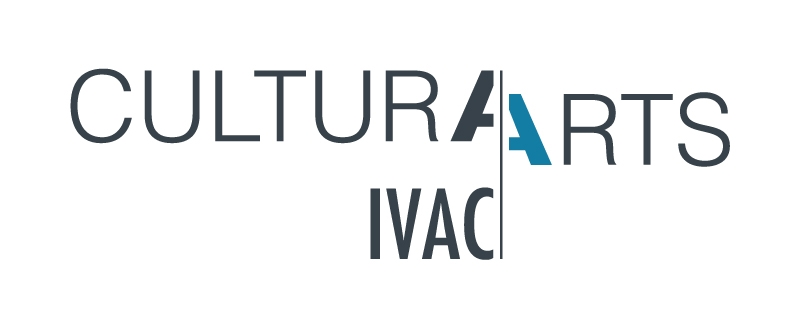
 >> www.fn.org.pl The National Film Archive in Poland was created in 1955. From the beginning it belonged to The International Federation of Film Archives (FIAF), an association of the majority of film archives in the World. The collection of film reels and archival materials such as posters, photos, scripts assembled in Filmoteka Narodowa is one of the largest in Europe. With the help of few generation of archivists Filmoteka Narodowa retrieve 75% of Polish feature films from 1914 to 1939 rescued after the II World War.
>> www.fn.org.pl The National Film Archive in Poland was created in 1955. From the beginning it belonged to The International Federation of Film Archives (FIAF), an association of the majority of film archives in the World. The collection of film reels and archival materials such as posters, photos, scripts assembled in Filmoteka Narodowa is one of the largest in Europe. With the help of few generation of archivists Filmoteka Narodowa retrieve 75% of Polish feature films from 1914 to 1939 rescued after the II World War.
![]() >> www.cinetecamilano.it The Cineteca Italiana was officially founded in Milan in 1947. Its first nucleus was a small stock of cinema masterpieces rescued from destruction in the Thirties and adventurously preserved until after World War II by a group of young cinéphiles and intellectuals among whom there were the future directors Luigi Comencini and Alberto Lattuada.
>> www.cinetecamilano.it The Cineteca Italiana was officially founded in Milan in 1947. Its first nucleus was a small stock of cinema masterpieces rescued from destruction in the Thirties and adventurously preserved until after World War II by a group of young cinéphiles and intellectuals among whom there were the future directors Luigi Comencini and Alberto Lattuada.
 The Imperial War Museum was founded in 1917 to record the story of the Great War and the contributions made to it by the peoples of the Empire. An Act of Parliament formally established the Museum and its governing body, the Board of Trustees, in 1920, when the Museum opened in the Crystal Palace. From 1924 to 1935 the Museum was housed in two small galleries adjoining the Imperial Institute. In 1936 it was reopened in the central portion of the former Bethlem Royal Hospital in Lambeth Road, Southwark where it remains to this day.
The Imperial War Museum was founded in 1917 to record the story of the Great War and the contributions made to it by the peoples of the Empire. An Act of Parliament formally established the Museum and its governing body, the Board of Trustees, in 1920, when the Museum opened in the Crystal Palace. From 1924 to 1935 the Museum was housed in two small galleries adjoining the Imperial Institute. In 1936 it was reopened in the central portion of the former Bethlem Royal Hospital in Lambeth Road, Southwark where it remains to this day.
 >> www.kinoteka.org.rs Jugoslovenska Kinoteka (official title since 1952) or National Film Archive of Republic Serbia is the national film library of the Republic Serbia, founded in 1949. It consists of four organizational units: Film archive, Film museum – the cinema, The Library and General Services. Jugoslovenska Kinoteka is one of the founders and a permanent member of FIAF (International Federation of Film Archives). It takes part in the activities of FIAF since 1951. The heart of the institution is the Film Archive.
>> www.kinoteka.org.rs Jugoslovenska Kinoteka (official title since 1952) or National Film Archive of Republic Serbia is the national film library of the Republic Serbia, founded in 1949. It consists of four organizational units: Film archive, Film museum – the cinema, The Library and General Services. Jugoslovenska Kinoteka is one of the founders and a permanent member of FIAF (International Federation of Film Archives). It takes part in the activities of FIAF since 1951. The heart of the institution is the Film Archive.
![]() >>www.kava.fi L’Archivio Film Finlandese è stato fondato nel 1957 come associazione privata. L’anno seguente è entrato nella FIAF, la Federazione Internazionale degli Archivi Film. Nel 1979, è diventato un ente pubblico dipendente dal Ministero dell’Istruzione. Dal 1 ottobre 2008 le funzioni dell’archivio sono state estese all’archiviazione di materiali televisivi e radiofonici. Il nome, alla stessa data, è stato mutato in Archivio Audiovisivo Nazionale.
>>www.kava.fi L’Archivio Film Finlandese è stato fondato nel 1957 come associazione privata. L’anno seguente è entrato nella FIAF, la Federazione Internazionale degli Archivi Film. Nel 1979, è diventato un ente pubblico dipendente dal Ministero dell’Istruzione. Dal 1 ottobre 2008 le funzioni dell’archivio sono state estese all’archiviazione di materiali televisivi e radiofonici. Il nome, alla stessa data, è stato mutato in Archivio Audiovisivo Nazionale.
 >> www.cinetecadelfriuli.org The Cineteca del Friuli was founded in Gemona in 1977, soon after the city was destroyed by the earthquake of May 1976, and is now one of the five major Italian film libraries. It joined the International Federation of Film Archives (FIAF) in 1989. The film archive began with a collection of films of historical interest and it has grown considerably over the years: it currently includes some 10,000 films in 35mm and 16mm, 50% fiction and 50% newsreels and documentaries. Small formats such as 17.5 mm, 9.5 mm, the 8mm and Super8 are also represented in about 500 copies.
>> www.cinetecadelfriuli.org The Cineteca del Friuli was founded in Gemona in 1977, soon after the city was destroyed by the earthquake of May 1976, and is now one of the five major Italian film libraries. It joined the International Federation of Film Archives (FIAF) in 1989. The film archive began with a collection of films of historical interest and it has grown considerably over the years: it currently includes some 10,000 films in 35mm and 16mm, 50% fiction and 50% newsreels and documentaries. Small formats such as 17.5 mm, 9.5 mm, the 8mm and Super8 are also represented in about 500 copies.
>> www.landesfilmsammlung-bw.de The Landesfilmsammlung Baden-Wuerttemberg (LFS) is the central film archive of the federal state of Baden-Wuerttemberg in Germany. It was established in 1998. The LFS collects films from and about Baden-Wuerttemberg. In addition it archives copies of films funded by the MFG Film Funding Organization. More than 8.500 films have been collected so far from communal, church, state and company archives as well as private collections, the major sources of the constantly growing collection. The oldest film reel dates back to 1904, the latest video file was recorded only last year.
 >>www.lichtspiel.ch Nel 2000, l’associazione Lichtspiel si è presa carico della collezione, in pericolo, del tecnico cinematografico di Berna Walter A. Ritschard. Da allora, l’associazione non solo ha restaurato e resa accessibile questa straordinaria collezione, ma ha anche sviluppato una cineteca regionale, che è diventata un punto di riferimento per il cinema e le materie ad esso correlate.
>>www.lichtspiel.ch Nel 2000, l’associazione Lichtspiel si è presa carico della collezione, in pericolo, del tecnico cinematografico di Berna Walter A. Ritschard. Da allora, l’associazione non solo ha restaurato e resa accessibile questa straordinaria collezione, ma ha anche sviluppato una cineteca regionale, che è diventata un punto di riferimento per il cinema e le materie ad esso correlate.
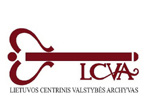 >>www.archyvai.lt L’Archivio Centrale di Stato è il maggior archivio lituano. Il suo obiettivo principale è la raccolta e la salvaguardia di documenti cartacei e audiovisivi per le future generazioni, assicurandone l’accesso permanente al pubblico. La sezione audiovisiva comprende film, supporti sonori, video e documenti fotografici.
>>www.archyvai.lt L’Archivio Centrale di Stato è il maggior archivio lituano. Il suo obiettivo principale è la raccolta e la salvaguardia di documenti cartacei e audiovisivi per le future generazioni, assicurandone l’accesso permanente al pubblico. La sezione audiovisiva comprende film, supporti sonori, video e documenti fotografici.
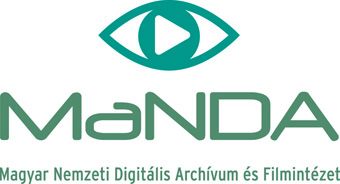 L’Istituto Ungherese di Scienze Cinematografiche è stato fondato nel 1957. Dal 2000 è diventato “collezione pubblica nazionale” e ha cambiato il proprio nome in Archivio Cinematografico Nazionale Ungherese. Obiettivi dell’archivio sono la raccolta, l’acquisizione, la preservazione, il restauro, la proiezione e la conservazione professionale di lungometraggi di finzione ungheresi, documentari, cinegiornali, film d’animazione, film didattico-scientifici e classici del cinema internazionale.
L’Istituto Ungherese di Scienze Cinematografiche è stato fondato nel 1957. Dal 2000 è diventato “collezione pubblica nazionale” e ha cambiato il proprio nome in Archivio Cinematografico Nazionale Ungherese. Obiettivi dell’archivio sono la raccolta, l’acquisizione, la preservazione, il restauro, la proiezione e la conservazione professionale di lungometraggi di finzione ungheresi, documentari, cinegiornali, film d’animazione, film didattico-scientifici e classici del cinema internazionale.
 >>www.museocinema.it Unique in Italy and among the most important worldwide, the Museo Nazionale del Cinema (or National Cinema Museum) is hosted within the Mole Antonelliana in Turin, the symbol of the city. Inaugurated in July 2000, it has seen over 6,500,000 visitors (568,000 only in 2012) in 13 years, becoming one of the most visited museums in Turin and in Piedmont and garnering much acclaim at an international level; a remarkable goal for a very particular museum, which proposes to charm its visitors by drawing them into the enchanting world of the Seventh Art.
>>www.museocinema.it Unique in Italy and among the most important worldwide, the Museo Nazionale del Cinema (or National Cinema Museum) is hosted within the Mole Antonelliana in Turin, the symbol of the city. Inaugurated in July 2000, it has seen over 6,500,000 visitors (568,000 only in 2012) in 13 years, becoming one of the most visited museums in Turin and in Piedmont and garnering much acclaim at an international level; a remarkable goal for a very particular museum, which proposes to charm its visitors by drawing them into the enchanting world of the Seventh Art.
 >>www.nfa.cz L’Archivio Film di Praga è stato fondato nel 1943 dal Centro Cinematografico Ceco-Moravo per proteggere i materiali cinematografici dalle operazioni di guerra. Nel 1946 è diventato membro della FIAF, la Federazione Internazionale degli Archivi Film. L’Archivio, che faceva parte dell’Istituto Cinematografico Cecoslovacco, nel 1992 è stato trasformato per decisione del Ministero della Cultura in Archivio Film Nazionale (NFA).
>>www.nfa.cz L’Archivio Film di Praga è stato fondato nel 1943 dal Centro Cinematografico Ceco-Moravo per proteggere i materiali cinematografici dalle operazioni di guerra. Nel 1946 è diventato membro della FIAF, la Federazione Internazionale degli Archivi Film. L’Archivio, che faceva parte dell’Istituto Cinematografico Cecoslovacco, nel 1992 è stato trasformato per decisione del Ministero della Cultura in Archivio Film Nazionale (NFA).
![]() >> www.nb.no La Biblioteca Nazionale norvegese raccoglie, preserva e restaura l’eredità cinematografica nazionale per renderla accessibile al pubblico. Le sue collezioni includono più di 21.000 titoli di generi, formati e origini differenti.
>> www.nb.no La Biblioteca Nazionale norvegese raccoglie, preserva e restaura l’eredità cinematografica nazionale per renderla accessibile al pubblico. Le sue collezioni includono più di 21.000 titoli di generi, formati e origini differenti.
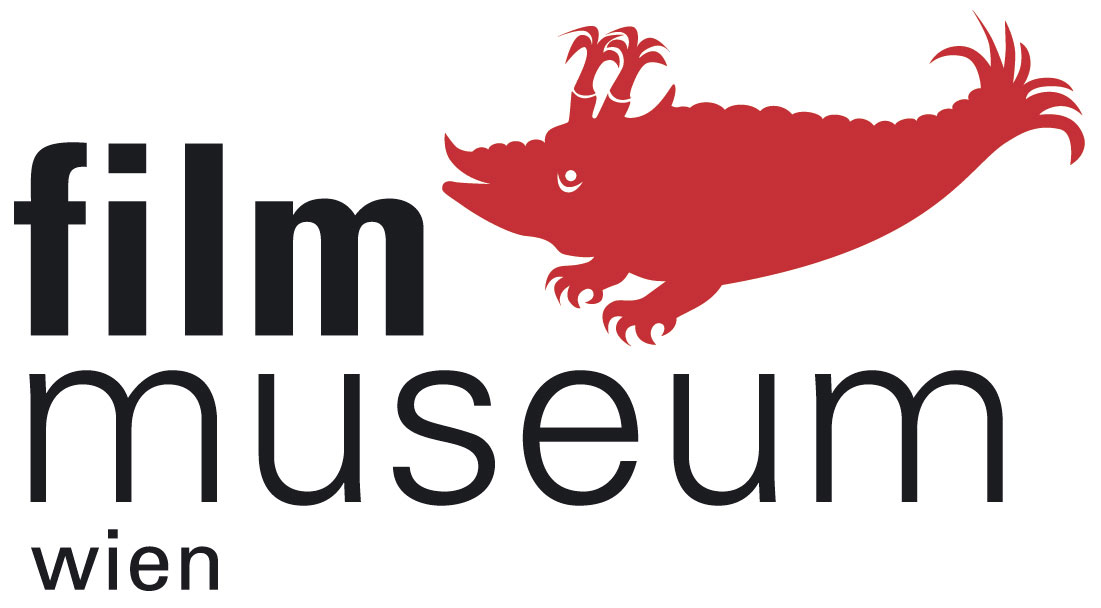 >> www.filmmuseum.at Österreichisches Filmmuseum (Austrian Film Museum / OeFM) is a specific exhibition space (film as a time-based event, the experience of a performative act), a collection site and archive (film as an artefact, as local and global memory), a research and study centre, as well as a place for public debate and reflection (film as a nodal point of discourse on culture and society).
>> www.filmmuseum.at Österreichisches Filmmuseum (Austrian Film Museum / OeFM) is a specific exhibition space (film as a time-based event, the experience of a performative act), a collection site and archive (film as an artefact, as local and global memory), a research and study centre, as well as a place for public debate and reflection (film as a nodal point of discourse on culture and society).
![]() >> ssa.nls.uk
>> ssa.nls.uk
The Scottish Screen Archive is a film and video collection of over 100 years of Scotland's history. The archive reflects 20th-century Scottish social, cultural and industrial history, the lives of ordinary Scots across the generations and the achievements of Scottish film-makers in the craft of film production. It joined the National Library of Scotland in 2007.
 >> www.sfi.se The Swedish Film Institute works to promote film across the board – from idea to finished product, during launch in Sweden and around the world, and by preserving films for posterity in our archives. It was founded in 1963 by the Swedish state and the various professional bodies of the film industry.
>> www.sfi.se The Swedish Film Institute works to promote film across the board – from idea to finished product, during launch in Sweden and around the world, and by preserving films for posterity in our archives. It was founded in 1963 by the Swedish state and the various professional bodies of the film industry.
.jpg) L’Archivio Film greco è nato nel 1950 ad Atene grazie all’Associazione dei Critici Cinematografici. Nel 1963, un decreto reale ha portato alla fondazione ufficiale degli “Archivi Cinematografici di Grecia”. Dal 1983, l’Archivio è membro della FIAF, la Federazione Internazionale degli Archivi Film. L’Archivio, fondazione culturale senza fini di lucro, riceve un finanziamento annuo dal Ministero della Cultura.
L’Archivio Film greco è nato nel 1950 ad Atene grazie all’Associazione dei Critici Cinematografici. Nel 1963, un decreto reale ha portato alla fondazione ufficiale degli “Archivi Cinematografici di Grecia”. Dal 1983, l’Archivio è membro della FIAF, la Federazione Internazionale degli Archivi Film. L’Archivio, fondazione culturale senza fini di lucro, riceve un finanziamento annuo dal Ministero della Cultura.
Conserva la più vasta e importante collezione cinematografica in Grecia, comprendente 10.000 titoli stranieri e 2.500 titoli greci. Inoltre conserva una collezione di apparecchi pre-cinematografici, lanterne magiche, vari tipi di cineprese ed equipaggiamenti legati al cinema. La biblioteca possiede una vasta collezione di libri non più in commercio, di cataloghi cinematografici e di riviste.
 Deutsch
Deutsch English
English Čeština
Čeština Dansk
Dansk Français
Français Italiano
Italiano Lietuvių
Lietuvių Magyar
Magyar Nederlands
Nederlands Norsk
Norsk Português
Português Suomi
Suomi